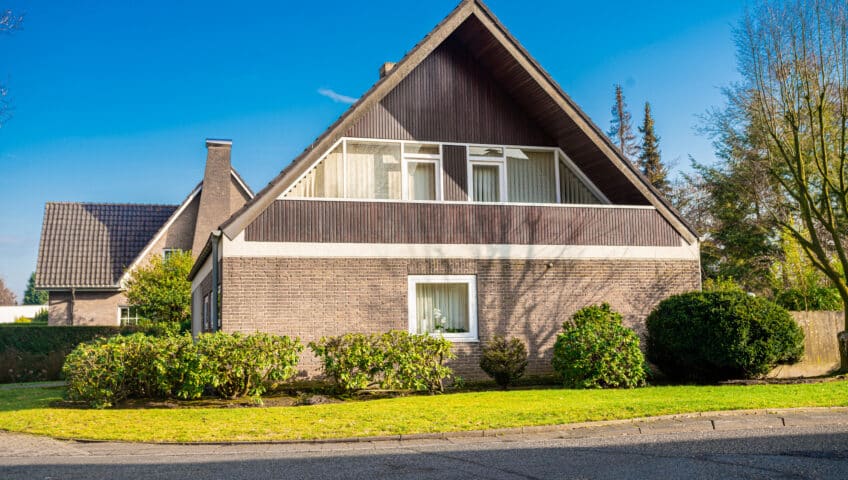Stormwater management is a critical aspect of residential landscaping that is sometimes overlooked. Heavy rain or melting snow can cause runoff, leading to erosion, flooding, and water pollution in local water sources. As environmental concerns continue to gain momentum, homeowners are increasingly considering sustainable stormwater management practices that not only protect their property but also contribute to the overall well-being of the environment. At New Wave Earth Works, we specialize in eco-friendly landscaping solutions, combining aesthetics, functionality, and environmental responsibility. In this blog, we will explore the benefits of sustainable stormwater management through eco-friendly landscaping and discuss various strategies for effectively handling runoff on your property.
Effective stormwater management starts with thoughtful landscape design that integrates environmentally conscious practices. By incorporating sustainable solutions such as rain gardens, permeable pavements, and well-positioned vegetation, you can significantly mitigate negative impacts associated with stormwater runoff. These approaches not only help protect your property from potential water damage but also contribute to water conservation efforts and support local ecosystems.
In the upcoming sections of this blog, we will delve deeper into sustainable stormwater management techniques and their benefits, providing practical examples and design ideas on utilizing eco-friendly landscaping practices to improve your residential property’s stormwater management strategy.
Sustainable Stormwater Management: Eco-Friendly Landscaping Solutions
Effective stormwater management is crucial for preventing damage to your property, preserving local water sources, and supporting the surrounding ecosystem. By integrating eco-friendly solutions in your residential landscape, you can significantly improve stormwater management while adding aesthetic value to your outdoor space. In this blog article, we explore various sustainable stormwater management practices and discuss their benefits and implementation.
1. Rain Gardens: Attractive and Functional Landscape Features
Rain gardens are shallow, landscaped depressions that capture stormwater runoff from roofs, driveways, or other impervious surfaces. They combine native plants, soil, and rocks to slow down and filter runoff, minimizing erosion, and water pollution. Here are some essential aspects to consider when constructing a rain garden:
– Location: Ensure your rain garden is situated at least 3 metres away from your home’s foundation to prevent potential water intrusion, and position it where it can collect the most runoff.
– Soil: Use a mix of sand, topsoil, and compost to promote proper drainage and support plant growth.
– Plant selection: Choose native plants with deep root systems, which can tolerate both wet and dry conditions. These plants help filter pollutants, absorb excess water and provide valuable habitat for wildlife.
– Maintenance: Although rain gardens are generally low-maintenance, it is essential to regularly check for debris, ensure plants are healthy, and replace any dead vegetation.
2. Permeable Pavements: Minimizing Surface Runoff and Recharging Groundwater
Permeable pavements, such as porous asphalt, permeable pavers, or grid systems filled with gravel or grass, allow water to infiltrate the ground, reducing surface runoff. They provide an attractive and sustainable hardscape alternative to traditional impervious surfaces. Here’s what you need to know about permeable pavements:
– Material options: Permeable pavers come in various materials, including concrete, plastic, or natural stone, while grid systems can be filled with grass or gravel.
– Installation: Proper installation is crucial to ensuring your permeable pavement’s effectiveness and durability. Hiring a professional landscaper with experience in permeable pavement installation is recommended.
– Maintenance: Regular maintenance, such as clearing debris from the surface and inspecting for damage, helps maintain your permeable pavement’s functionality.
3. Strategic Vegetation Placement: Directing and Slowing Down Runoff
Integrating strategically-positioned vegetation in your landscape can help slow down, absorb, and direct stormwater runoff more effectively. Consider incorporating these elements into your stormwater management plan:
– Tree lines: A row of trees can protect your property from wind, collect runoff, and provide shade.
– Swales: These shallow, grassy channels can slow down and direct surface runoff to mitigate erosion and flooding.
– Buffers and Conservation Areas: Preserve or establish vegetated areas alongside water bodies (streams, ponds, etc.) to filter runoff and protect water quality.
4. Green Roofs: Reducing Runoff and Enhancing Urban Biodiversity
Installing a green roof is another innovative approach to sustainable stormwater management. Green roofs consist of vegetation and growing media layers installed over a waterproofing membrane on building rooftops. Benefits of green roofs include:
– Runoff reduction: Green roofs can absorb a significant amount of rainwater, reducing the quantity and flow rate of stormwater runoff.
– Energy efficiency: Vegetation provides natural insulation, reducing energy consumption for heating and cooling.
– Urban biodiversity: Green roofs create habitats for insects, birds, and other small wildlife, promoting biodiversity in urban areas.
– Aesthetic appeal: Visual enhancement of your rooftop can increase property value and create an attractive view for overlooking neighbours.
Embracing Sustainable Stormwater Management Solutions
By implementing sustainable stormwater management practices, such as rain gardens, permeable pavements, strategic vegetation, and green roofs, you can effectively protect your property from potential damage, support local ecosystems, and promote environmental responsibility. These eco-friendly landscaping solutions not only address critical environmental challenges but also enhance the beauty and functionality of your outdoor space.
At New Wave Earth Works, our team of experienced professionals is dedicated to helping you create a harmonious balance between aesthetics and sustainability. By guiding you through the design and implementation of sustainable stormwater management practices, we can transform your residential landscape into an environmentally-responsible, attractive outdoor oasis. Contact our landscaping company in Vancouver today to discuss your landscaping needs and let us help you embark on your journey towards sustainable stormwater management.


